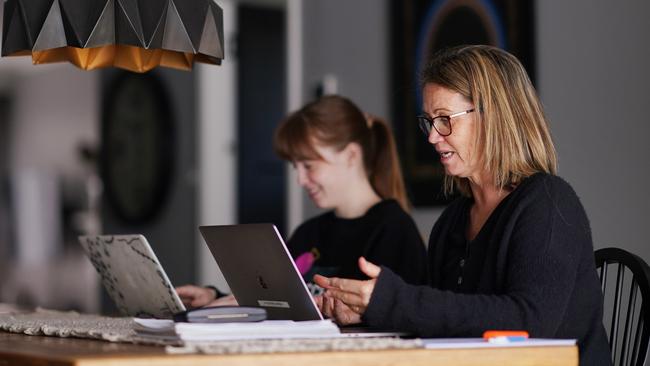Kevin Donnelly: Students need to get back into the classroom
By forcing students to keep learning from home for another 10 weeks, Premier Daniel Andrews has shown he has overreacted to the coronavirus crisis and is putting politics and ego ahead of what’s best for Victorians, writes Kevin Donnelly.
Keeping Victorian schools shut and forcing students to remain home for another 10 weeks until the start of term three proves Premier Andrews is the odd man out and guilty of putting ego and politics ahead of what is best for families and students.
Add the fact that the ALP government has shut down parliament, refuses to allow proper scrutiny of the additional billions spent that will bankrupt the state and introduced draconian and unnecessary quarantine measures and it’s clear Premier Andrews has overreacted.
It’s also the case that the left-leaning Australian Education Union, in supporting the premier, displays a total disregard for students; especially those most disadvantaged.
It’s no secret that the AEU consistently supports the Australian Labor Party and that those who control the union are hostile towards conservative governments like that led by Prime Minister Scott Morrison.
Unlike overseas hot spots, including London and New York, the rate of infection in Australia has declined significantly over the past month with a mortality rate, however tragic, at 90 nationally and 18 in Victoria.
Add the fact that the growth in the rate of infection is down from 25 per cent to only 1 per cent and it’s increasingly clear urgent initial action has been effective and that it’s time to unwind restrictions.
The case for opening schools is even stronger given national health experts and research carried out in the UK argue young people are not at risk because of COVID-19.
To any sensible person it’s understandable why the other states and territories have decided to adopt a staged return to the nation’s classrooms.
Allowing students to return to the classroom to be properly taught is especially vital for those thousands of students from low social-economic backgrounds where English is the second language, parents don’t have the time and resources to act as tutors and where homes lack computers and access to the internet.

Research shows students from wealthy suburbs with educated, professional parents are already advantaged when it comes to NAPLAN, Year 12 results and tertiary entry compared to disadvantaged students.
Forcing all students to learn from home further reinforces disadvantage as it’s not a level playing field when it comes to digital technology, the number of books in the home and parental expertise and ability to tutor their children.
Victoria’s Year 12 students will especially suffer if they are forced to continue learning from home as interstate Year 12 students are returning to school and will have a head start in terms of achieving a strong Australian Tertiary Admissions Rank. The ATAR is used to decide tertiary entry and a student’s result significantly impacts what happens after she or he leaves school.
As someone who taught Year 12 for more than 10 years it’s obvious no matter how positive people are about virtual classrooms the reality is that if senior school students are to achieve their personal best they need face-to-face contact with dedicated and committed teachers who are expert in their subject area and best able to engage and motivate students.
Primary schoolchildren in the early years are also at risk as banning them from the classroom means they miss months of formal schooling, thus denying them the opportunity to be taught essential literacy and numeracy skills so vital if they are to have any chance of succeeding in later years.
Victorian students are already underperforming academically as measured by international tests, including the Trends in International mathematics Study, the Program for International Student Assessment and the Progress in International Reading Literacy Study, underscoring the need to get back to classroom teaching as soon as possible.
After more than 6 weeks of being at home, for many students the novelty of virtual classrooms has worn off. Being forced to learn in isolation is also concerning as nothing can replace the human interaction that occurs in the classroom where there is a strong community of learning.
It’s time to return to school and similar to New South Wales there are a number of strategies we need to employ.
Older teachers or those with existing health issues should not be forced back; schools need to ensure proper hygiene practices; a flexible timetable should be adopted where classes rotate on different days of the week and parents need to ensure social distancing when dropping off and picking up students.
Given there are some parts of Victoria where COVID-19 is not a serious health issue it’s also possible to allow schools in those regions to re-open first.
The Commonwealth Government has provided funding to non-government schools earlier than usual with the deadline for responses on Friday. Given the financial strains caused by COVID-19 the likelihood is that many non-government schools will take the funding and re-open in the next two to three weeks.
It’s vital state school students are given the same opportunity.
Dr Kevin Donnelly is a Senior Research Fellow at the Australian Catholic University and author of A Politically Correct Dictionary and Guide (kevindonnelly.com.au). He is a former chief of staff to Member for Menzies Kevin Andrews

